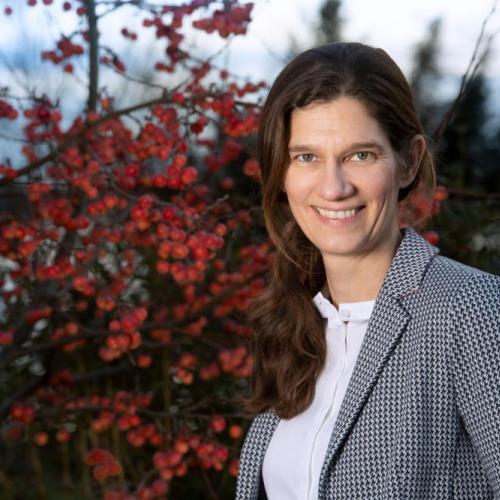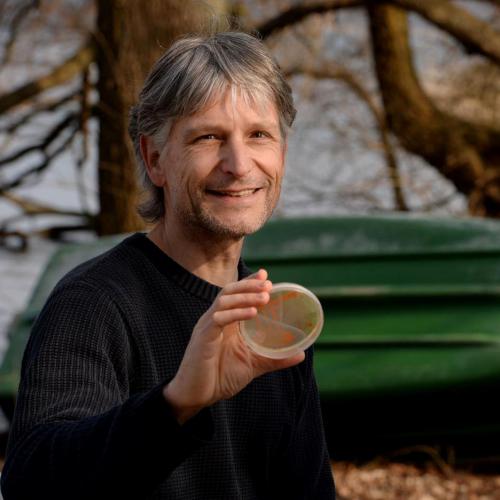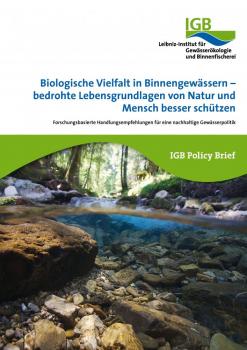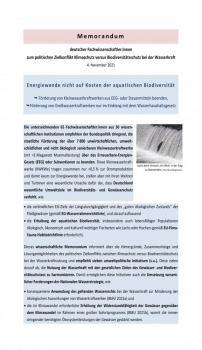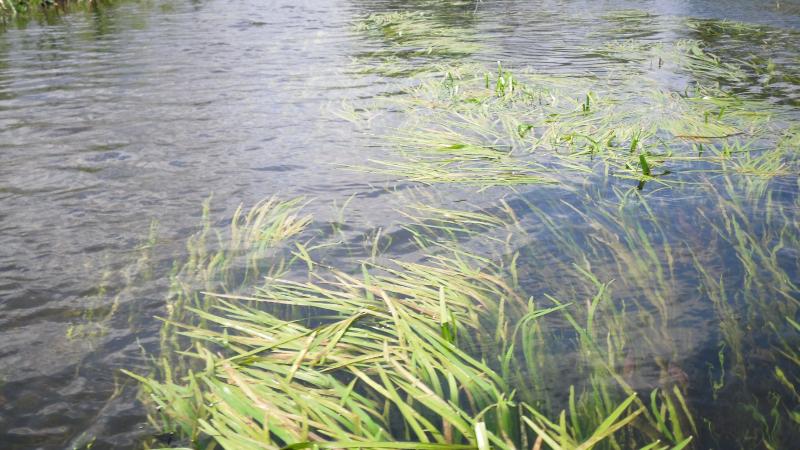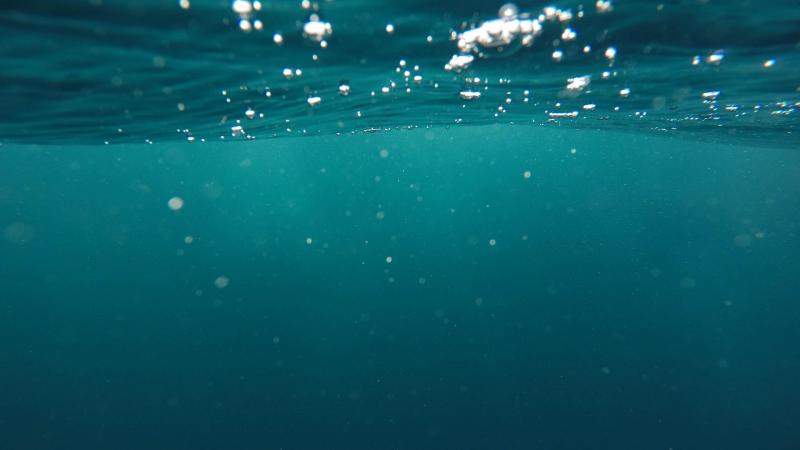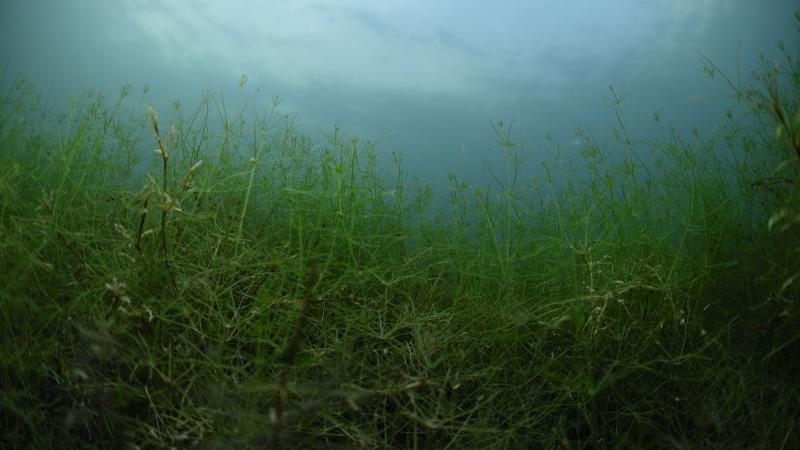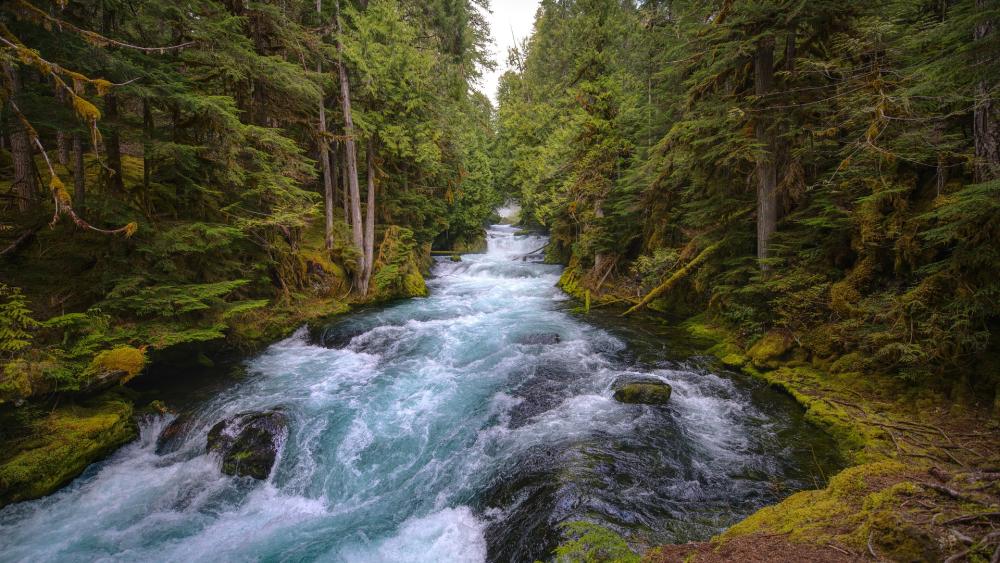
Inland waters harbour a particularly high biodiversity and provide vital ecosystem services for humans. | © Hardebeck Media auf Pixabay
Globally, biodiversity is declining at an unprecedented rate. Freshwater species, the genetic diversity of their communities and freshwater ecosystems are particularly at risk. Studies and numbers show this impressively. In inland waters, habitats are shrinking particularly dramatically, e.g. because there is an increasing lack of oxygen in the deep zones of many lakes, the temperatures of the surface water are rising, or because running waters are dammed up and periodically dry up. Climate change with increasing weather extremes such as droughts and floods is further exacerbating the situation.
Inland waters should have equal priority as terrestrial and marine systems
"The great relevance of inland waters continues to be overlooked in international biodiversity policy," criticises IGB researcher Professor Sonja Jähnig and continues: "Springs, streams, rivers, lakes, small bodies of water, wetlands and groundwater are indispensable prerequisites and the basis of life for nature and thus also for us humans. Therefore, inland waters and their biodiversity should be established as an equally important, third ecological realm in political and societal frameworks and strategies, alongside terrestrial and marine ecosystems."
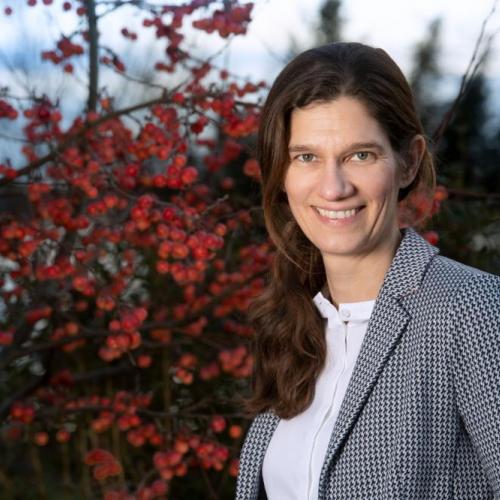
© David Ausserhofer/IGB
"Inland waters should be established as a third ecological realm alongside terrestrial and marine systems."
Professor Sonja Jähnig
So far, rivers, lakes and wetlands have been categorised in different policy frameworks as either terrestrial – because they are embedded in the terrestrial area – or seas and oceans – because they are aquatic. "Freshwater ecosystems must no longer be side lined. They can only fulfil their diverse functions as habitats and key resources for humans and nature if they are consistently protected, sustainably managed and ecologically improved," summarises Jähnig.
This explicitly applies to the new Global Biodiversity Framework 2030, which will be negotiated in the coming days. Its goals must be adapted so that specific targets for inland waters are set for the restoration of ecosystems and the enlargement of protected areas. Sonja Jähnig, together with 20 other internationally renowned freshwater experts, recommends this in a Science Brief published yesterday by the GEOBON and FWBON network.
There should be no climate protection without biodiversity protection
Inland waters are also too often neglected in measures against climate change. Their biodiversity is particularly affected by climate impacts, for example because lakes around the world are warming faster than the atmosphere and the oceans – or the flow regime of entire river systems is shifting. If climate protection is not reconciled with other nature conservation goals, biodiversity may additionally come under threat, as IGB expert Dr Martin Pusch explains: "The biodiversity crisis in our inland waters is closely linked to the climate crisis, because seasonal droughts with low flow rates, increased pollutant concentrations and higher water temperatures pose a particular threat to life below the water surface," he says.

© David Ausserhofer/IGB
"Conservation of aquatic biodiversity must be given priority. We need more free-flowing rivers and large-scale restorations instead of inefficient hydropower projects."
Dr Martin Pusch
"The expansion of hydropower in particular, which is being promoted as an adaptation to climate change, poses great risks to aquatic biodiversity: millions of dams and other barriers promote the mass development of algae in rivers and prevent fish from seeking cooler refuges during heat waves. At the same time, hydropower plants contribute less to climate change mitigation than expected, as reservoirs are emitting high amounts of greenhouse gases themselves, especially in the tropics and subtropics." Pusch therefore recommends: "The conservation of aquatic biodiversity must be given priority. We urgently need more free-flowing rivers and large-scale restoration instead of additional inefficient hydropower projects with their high ecological and social costs."
Even the smallest creatures need to be protected
If large lakes and rivers are already out of the picture, what about the smallest organisms they harbour? Millions of species of tiny microorganisms such as fungi and bacteria are found in all types of water bodies – in small puddles, large inland lakes, even in ice and snow. Although most of them cannot be seen with the naked eye, they make up the majority of biodiversity in all ecosystems.
"These microorganisms form the basis of any food web and contribute quite significantly to the functions of an ecosystem – take the fungi, for example, which remineralise organic material and thus keep nutrients and other compounds in the production cycle. Especially in larger bodies of water, they play an important role in the so-called carbon pump, as they have a lasting effect on the sinking of organic matter to the deeper water and thus also affect the climate. In addition, they help to decompose pollutants," explains IGB microbiologist Professor Hans-Peter Grossart.

© David Ausserhofer/IGB
"Current environmental changes can lead to the loss of key species and thus of ecosystem functions. Therefore, there is an urgent need to add fungal key species to the list of organisms to be protected."
Professor Hans-Peter Grossart
Although microbes are so crucial for ecosystem functioning and our health, little is known about whether we will lose key species as a result of global change and how this might affect the functioning and thus the health of our natural environment. "We assume that current environmental changes may lead to the loss of key species and thus of ecosystem functions," emphasises the IGB researcher, adding: "Therefore, there is an urgent need to add fungal key species to the list of organisms to be protected." However, this won't be easy, given that fungi are still one of the least researched groups of organisms in water bodies.
Natural systems – do they still exist?
"Truly untouched nature actually does not exist anymore almost anywhere in the world," is the answer of Dr Tina Heger, who conducts research at IGB in the Ecological Novelty Working Group. "In Germany we have no primeval forests, in Europe hardly any rivers flowing unregulated and human-induced climate change is affecting and changing all ecological systems."
© private
"We need approaches that help us understand that everything we consider nature is managed by humans and that this implies a special responsibility."
Dr Tina Heger
In a recent interview, the biologist therefore advocates that natural and human-influenced nature should not be seen as opposites. Instead, there can be all conceivable states between these two poles. "An ecosystem in which humans intervene can be just as biologically diverse as a natural system, and it can sometimes even be more resilient – as successful restoration projects show. We need terms that help to describe such transitions between natural and man-made states in nature," she says. "In the end," Heger adds, "this is also an ethical and philosophical question – which underlines the responsibility of humans for the nature that surrounds all of us."
The quoted and other IGB researchers are happy to answer questions about aquatic biodiversity.
Please find the latest news and all contact persons on our biodiversity page >


